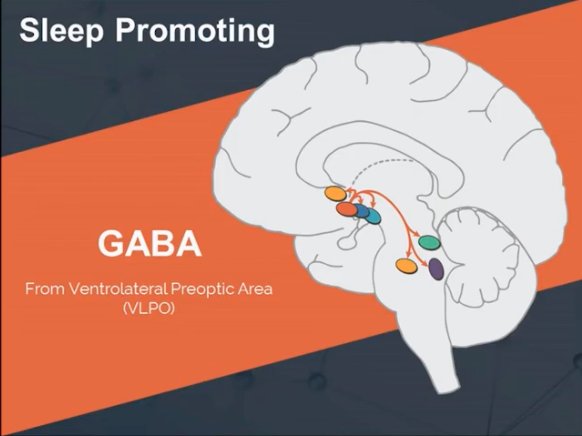SomnusNooze
 Amanda Freeman, PhD
Amanda Freeman, PhD
What is GABAA? And how does it affect hypersomnia? We are very pleased to present a two-part video series by neuroscientist Amanda Freeman, PhD, of Emory University, which describes, in layman’s terms, exactly how y-aminobutyric acid, better known as GABA, affects sleep. Dr. Freeman explains that although there are 5 wake-promoting transmitters in your brain, there is only one neurotransmitter that promotes sleep – and that is GABA. Research performed at Emory University by Dr. David Rye and his colleagues has suggested the possibility that, with respect to GABA-related hypersomnia, the problems with wakefulness may be due more to excessive activity of the GABA system (thereby inhibiting the wake-promoting transmitters of your brain), rather than to a defect in the brain’s wake-promoting transmitters themselves. As Dr. Freeman notes, this was a paradigm shift in the thinking about sleep and GABA.
The first part of this two-part video series focuses on explaining what GABA is and what role it plays in our sleep. The second part of this two-part video series focuses on how GABA inhibits neurons, and how research by Dr. Rye and his colleagues at Emory have identified an endogenous molecule in the cerebrospinal fluids of patients with hypersomnia that increases the activity of GABA receptors.
CLICK HERE to watch the first part of Dr. Freeman’s two-part video series. You can also download the transcript HERE and/or the slides HERE.
Then, you can watch the second part of Dr. Freeman’s two-part video series HERE.
And check out HF’s video library HERE!
NOTE: If you have any questions about this GABA video series, please consult your own personal physician or , not Dr. Freeman.
And if you would like to learn more about GABA, here are a few of our related articles:
Finally, if you enjoy these new educational videos, as well as the GABA-related articles on our website, please consider donating to the Hypersomnia Foundation. As a nonprofit, charitable organization, we are dependent on donations and grants to continue raising awareness of, and increasing research into, rare sleep disorders like idiopathic hypersomnia.

